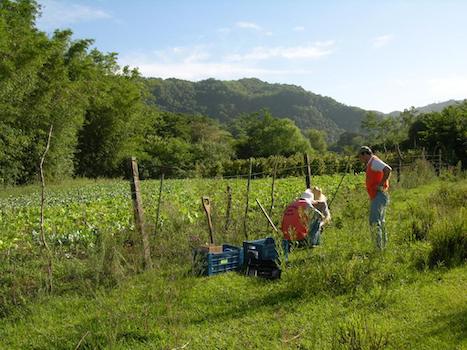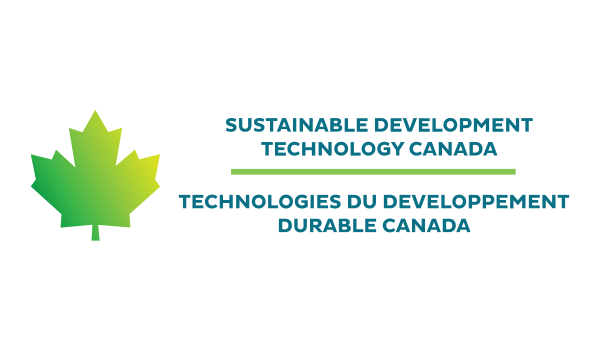Research infrastructure: bigger, better, and more demanding than ever
 Canada could learn from other countries when it comes to the country’s largest and most ambitious research facilities, said a new report from the Organisation for Economic Co-operation and Development’s Global Science Forum (GSF) on what it dubs very large research infrastructure (VLRI).
Canada could learn from other countries when it comes to the country’s largest and most ambitious research facilities, said a new report from the Organisation for Economic Co-operation and Development’s Global Science Forum (GSF) on what it dubs very large research infrastructure (VLRI).
“Most countries are increasing their share of investment in research infrastructure, especially large research infrastructure,” explained Heidi Bandulet, Special Advisor for Research Facilities at the Canada Foundation for Innovation, and one of the co-authors for the report.
Countries value these investments, she told Research Money, not just for the scientific findings they can generate, but also for the potential social and economic benefits they often spawn. Nevertheless, as the underlying science and technology becomes ever more sophisticated, the price tag keeps going up.
“The number, scale, complexity, and diversity of VLRIs are all increasing and each new generation of VLRIs is becoming more and more costly,” concludes the report, noting the most ambitious of these initiatives turn to international partnerships to remain on the cutting edge of their respective fields.
Such partnerships augment the demands on administrators in these operations, as different participants join with varying expectations and abilities to contribute. Bandulet describes the GSF report as an important reference document for anyone involved with similar efforts.
“It provides a snapshot on how the world goes about making investments in large infrastructure, on what basis the decisions are made to build or participate in a large facility, what is in it for all those countries to be making those decisions, and what happens when they’re not doing it,” she said.
Bandulet discussed an earlier GSF report on research infrastructure management with Research Money in 2020, which pointed to managerial demands that had been growing steadily, but spiked significantly when the Covid pandemic drastically limited the access investigators had to the people and equipment they needed for their work. Although such access has now largely been restored, research facilities around the world continue to grow in size and scope.
Bandulet and her colleagues surveyed data from VLRI sites around the world, as well as conducting in-depth interviews with representatives of almost two dozen facilities. Among them was one of the most venerable in Canada, the TRIUMF particle accelerator in Vancouver, now more than 50 years old.
TRIUMF began as a comparatively modest collaboration between three Canadian universities in the 1960s, but has subsequently grown into a much larger enterprise engaged in public and private sector activities in Canada and elsewhere. Currently owned by 21 Canadian universities, TRIUMF changed its legal structure in June 2021, from a joint venture to a registered charity and not-for-profit organization incorporated in Canada.
TRIUMF administrators outlined the reasons for that move to the GSF.
“The changes that were made were intended to allow TRIUMF to operate more efficiently through a more streamlined Board structure, supporting more proactive decision-making, greater accountability, and a stronger focus on both the science and the stewardship of TRIUMF. This new model also accounts for geographic and diversity considerations.”
Bandulet said evidence from “lived experience” makes this latest GSF report highly relevant for members of the research community. “We were looking at how they’re able to build a more sustainable business model, and how this evolves from the initial building stage to the operational stage — what are the pitfalls and everything you need to think about.”
More specifically, she added, the report unpacks how these facilities deal with changing sources of financial support or new research opportunities. In many parts of the world, this process is facilitated by government-led policies, providing research administrators with guidelines and direction to set their own course.
Among the countries surveyed for the report, almost all have a national research strategy specific to infrastructure. Canada currently does not, a fact pointed out in the recent report of the Advisory Panel on the Federal Research Support System. More specifically, that report recommended road-mapping exercises, on the order of 5-20 years, to support major research facilities (MRFs).
“This road-mapping exercise would include (but not be limited to) MRFs as well as other nationally significant research infrastructure investments across the ecosystem,” stated the report. “This will facilitate joint priority setting (where applicable), earlier communication and better understanding of the contribution of a province and its willingness to invest in a shared priority area.”
Read more: Build a focused research system, report warns, or watch the brain drain
Even in the absence of such road maps, Bandulet concluded, members of the research community are often expected to articulate their work in this way.
“While the advisory report could help in developing a national strategy for VLRIs in Canada,” said Bandulet, “we are already asking researchers to define the importance of their work to Canadians.”
Bandulet says this report will help foster policy awareness about VLRIs and will offer some guidance on how other countries are planning and managing these critical, yet complex national research assets. “In Canada, we’re very good at bottom-up, but for these big investments, we may be able to learn from successful strategies other countries have adopted.”
R$
| Organizations: | |
| People: | |
| Topics: |
Events For Leaders in
Science, Tech, Innovation, and Policy
Discuss and learn from those in the know at our virtual and in-person events.
See Upcoming Events
You have 0 free articles remaining.
Don't miss out - start your free trial today.
Start your FREE trial Already a member? Log in
By using this website, you agree to our use of cookies. We use cookies to provide you with a great experience and to help our website run effectively in accordance with our Privacy Policy and Terms of Service.





